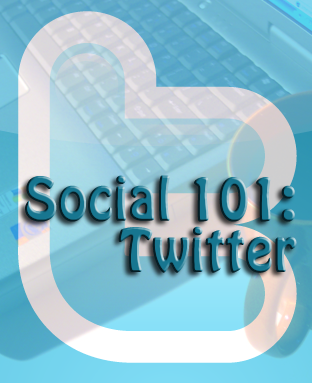 Image: Nutdanai Apikhomboonwaroot / FreeDigitalPhotos.net
Image: Nutdanai Apikhomboonwaroot / FreeDigitalPhotos.netLast week, my friend Lara shared
a description of social media as well as the benefits of using it. She encouraged those in her audience who are curious to go ahead and give it a try. But not everyone likes the use of the term "social media". Raise your hand if you've ever heard (or read) someone say something like, "I can't wait until we stop using the term 'social media'." By the end of this post, everyone should be raising their hands. When I read
a piece by Mathew Ingram lamenting the use of the term "Cloud", it prompted me to look into the longstanding "social media" terminology debate.
Over the years, I've seen this come up countless times. Often, it's accompanied by really solid arguments about what social media tools really are in relation to communications and marketing. Here's the problem - everyone who has a valid reason for not calling this medium social media also has a different name they propose. Some are better than others. A few options for you to ponder:
There is good food for thought in each of these posts - particularly Ryan Anderson's which is the only one of the three that didn't try to put a new and improved buzz word out there for the world to use. But I haven't seen anyone come up with a
good enough reason to try to stop people from calling it social media. Let's look at the primary reasons given in the posts above:
Tim Sanders (relaying challenges around getting buy-in with executives):
"Their biggest challenge is selling their senior leaders and CEOs on the concept. To the average (older or non-tech) exec, social media is a fad that's led by propellerheads and amateur mavens. In their view, it's a fad (like CB Radios) that they hope will soon pass. Sure, they've heard the United Breaks Guitars story, but it likely doesn't apply to them - and when you use words like Twitter, they scrunch up their face in disbelief."
And "interactive media" solves this problem? Twitter is still a tool in the interactive media space - they'll accept it because it's "interactive media" and not "social media"? Think about the tools that are used in various industries and the names they have. There are plenty of silly names out there, but when users learn how to use the tool properly and see the value it adds to their work, do you think they quibble over what it's called?
Boardroom Metrics"Tired of endless conversations with smart business owners about the irrelevance of social media, I’ve decided to stop calling it social media."
I think the author of this post may not feel as strongly about this whole terminology question as the others based on the tone of the message. They give a very simplistic line of reasoning for businesses to embrace social media - to gain better visibility on the Web. If that works for convincing their clients to move forward, that's great. After all,
a business can't be social, but but social media gives businesses a medium to put a human "face" or personality on what they do and allows them to interact with individuals in a more personal way.
Ryan Anderson (talking about the evolution of work with a long-term client)
"What had started as a perceived need for blogs and Facebook had turned into something very different – and went from being an additional part of their marketing to a core part of their business strategy."
[AND]
"The reality is, for all the talk about social media – there’s really no such thing. There is only communication, and while our academic pursuit of what we call social media has certainly advanced the practice of communication as a whole, social media is nothing but a buzzword, a marketing ploy, a big ol’ bottle of snake oil that a slick-talking sideshow act is selling for a dollar to cure what ails you."
It must be incredibly gratifying to work with a client who wants to join "the Twitter" and see the real purpose click as they finally get it. Integrating social media into the overall business strategy is the ideal scenario - it's the end goal when you start working with someone. The part where Ryan loses me is in that italicized section that spouts "buzzword", "ploy", "snake oil" and other unflattering terms.
I don't agree with the sentiment, but I understand where it comes from. There is a mentality that social media will be a cure all to an ailing business. The way to take your business viral and make millions...no, billions. ("Let's make a viral video!" is a phrase I hear too often and it makes me cringe every time.)
Social media is a group of tools that marketers and communicators can use to make connections. We have traditional media tools and now social media tools that can be used together to create a cohesive and comprehensive communications plan. However, the tools themselves do not function the same, so classifying them differently is appropriate.
When all is said and done, if the tools are used in an effective way that fits with that overall business strategy, does it really matter what label we use to describe them? Image Source: MorguefileI was having lunch with my friend, Kim, yesterday. She came to Ottawa ALL the way from Winnipeg to attend Social Capital Conference last weekend. (How cool is that?) We got to chatting about Twitter, because we often do since that’s where we met. Kim made an observation about some twitter users that I’ve noticed as well: when “butting in” to a conversation, many preface their comments with an apology for doing so. I’ve done it before, too. I’ll likely do it again without thinking.
Image Source: MorguefileI was having lunch with my friend, Kim, yesterday. She came to Ottawa ALL the way from Winnipeg to attend Social Capital Conference last weekend. (How cool is that?) We got to chatting about Twitter, because we often do since that’s where we met. Kim made an observation about some twitter users that I’ve noticed as well: when “butting in” to a conversation, many preface their comments with an apology for doing so. I’ve done it before, too. I’ll likely do it again without thinking.


 In my first post for Lara, I talked about the big question of whether to use Facebook pages or groups for your community. Now that you’ve set up your Page or Group, here are five strategies that you can use to make your content professional, useful and promote engagement with your followers:
In my first post for Lara, I talked about the big question of whether to use Facebook pages or groups for your community. Now that you’ve set up your Page or Group, here are five strategies that you can use to make your content professional, useful and promote engagement with your followers: If you’ve ever wondered how some Twitter users follow tens of thousands of people - or even just a few thousand - the answer is lists. No one follows thousands of people - not in an engaged way. But they may click follow and go back to looking at the lists they’ve created to filter out all the noise.
If you’ve ever wondered how some Twitter users follow tens of thousands of people - or even just a few thousand - the answer is lists. No one follows thousands of people - not in an engaged way. But they may click follow and go back to looking at the lists they’ve created to filter out all the noise.